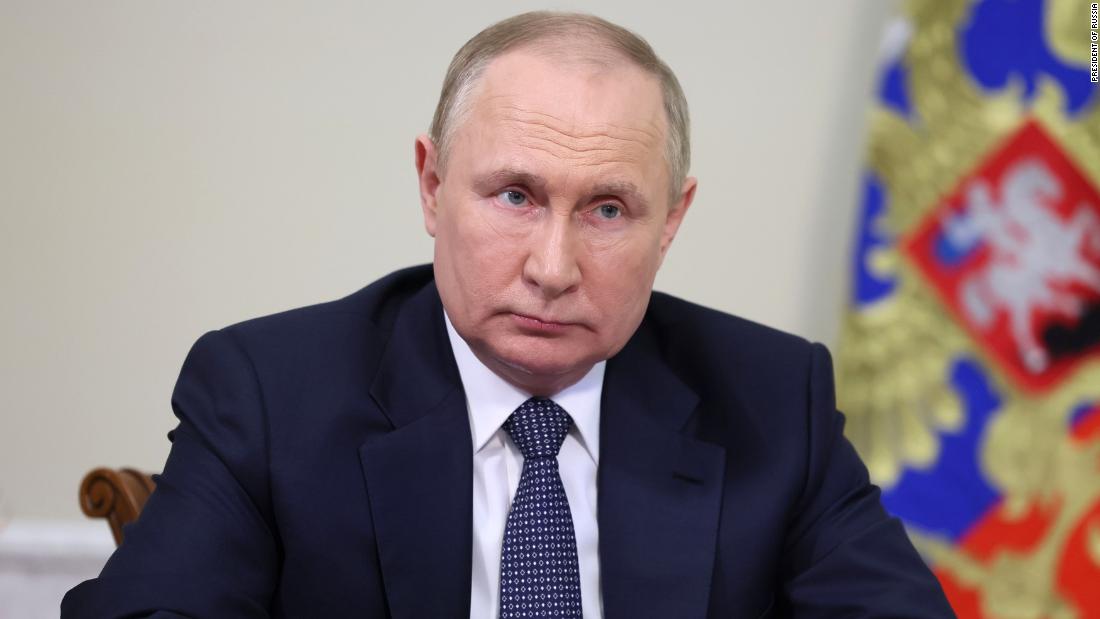
We’ve wrapped up our live coverage for the day. You can read more on Russia’s invasion of Ukraine here, or scroll through the updates below.
Analysis: How the ICC’s arrest warrant has constricted Putin’s world
Analysis from CNN’s Nic Robertson
Russian President Vladimir Putin’s world just got a lot smaller after the International Criminal Court issued an arrest warrant for him over the alleged deportation of Ukrainian children to Russia.
Basking in international focus, Putin used to thumb his nose at the world — or manipulate its leaders — in person, a perk if you will of his stubborn, decades-long grip on power.
His love and use of the global limelight helped him at home too, bolstering his tough-guy, bare-chested, bear-hunting image as protector of Russians, holding back supposed malign machinations of NATO marauding the country’s borders.
But all of that is over.
Most countries on Earth – 123 of them – are parties to the treaty that created the ICC, and they are obligated to extradite him to The Hague to face trial as a war criminal if Putin pitches up on their doorstep.
Putin also faces a dilemma if he shows up in New Delhi for this year’s G20 summit in September. India, like the US and Russia, is not signed up to the ICC, but what will Prime Minister Narendra Modi do?
It leaves ambiguous the type of legal snare Putin could inadvertently find himself in the future. Without careful planning, Putin could find that even in a country unaligned with the ICC — and therefore not beholden to hand him over to The Hague — political pressure or a newfound desire for international justice triggers his arrest.
Putin is unlikely to leave his destiny to the roll of the dice in a foreign court, so his world is smaller even than the ICC holdout nations. So regardless of Kremlin spin, Putin’s ego is dented.
US Republicans push back on criticism over Ukraine aid as 2024 presidential race looms
From CNN’s Kit Maher and Veronica Stracqualursi
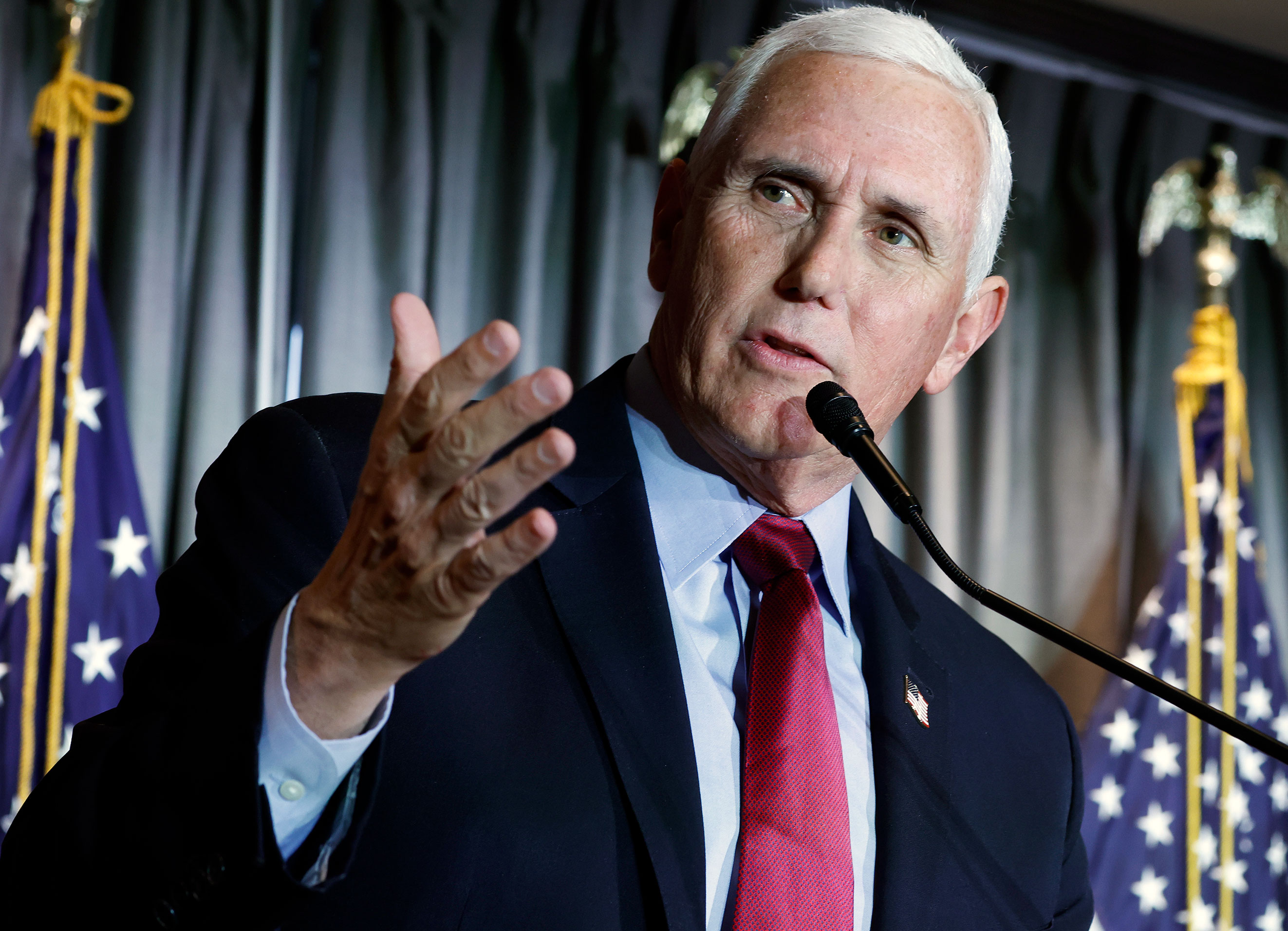
Two Republicans floated as potential 2024 US GOP presidential candidates made clear Saturday that they disagree with Florida Gov. Ron DeSantis — who is also positioned for a 2024 run — on the issue of Russia’s war in Ukraine.
Former Vice President Mike Pence and New Hampshire Gov. Chris Sununu drew a contrast with DeSantis’ comments describing the invasion as a “territorial dispute” that isn’t of “vital” national interest to the US.
At a foreign policy forum with Sen. Joni Ernst in Des Moines, Iowa, Pence reiterated his remarks pushing back on DeSantis’ characterization, saying “the war in Ukraine is not a territorial dispute; it is a Russian invasion.”
In an op-ed published by the Washington Post Saturday, Sununu said, “We must stand with our allies around the globe to fight aggressive and dangerous regimes that threaten freedom wherever they are.”
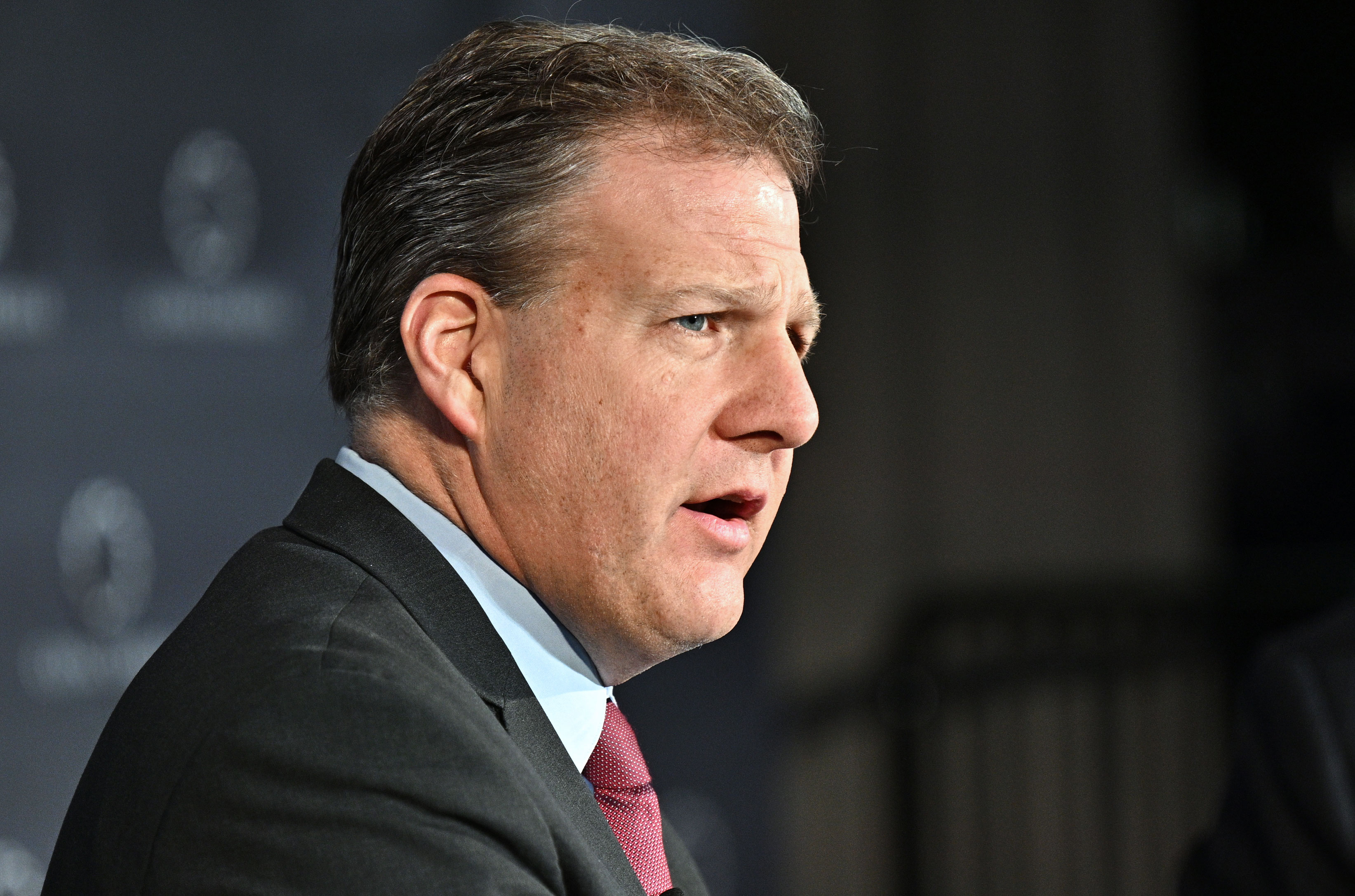
DeSantis has condemned the “Biden administration’s virtual ‘blank check’ funding” of the conflict.
But Sununu argued the price of abandoning Ukraine would be much higher.
“There should never be blank checks when it comes to government funding, and all tax dollars must be spent and accounted for wisely. Yet the price the United States is paying in Ukraine today is far less than the price we will face if Putin continues his westward march, threatening the sovereignty and security of NATO,” he wrote.
Pence and Sununu both also argued that supporting Ukraine sends a clear message to China.
“As we think about our largest and most significant strategic challenge, which is China, the best way to send a message to China about its military ambitions is to see the free world stand strongly for the sovereignty for the people of Ukraine,” Pence said
Sununu warned Chinese President Xi Jinping “is watching,” and said abandoning Ukraine would “send an unmistakable signal to dictators that the United States does not stand with its allies, nor for the expansion of freedom.”
He added that some of his Republican colleagues have “lost their moral compass on foreign policy,” and said “as Republicans, we should support freedom, not abandon it.”
Foreign Ministry spokesperson: Russia is open to “serious proposals” for diplomacy from the West and Ukraine
From CNN’s Mariya Knight
Russia would consider “really serious proposals” from Western nations and Ukraine regarding a possible end to the war, according to the Russian Foreign Ministry’s spokesperson.
“We have repeatedly stated that we are open to really serious proposals from the West and Ukraine for a political and diplomatic solution to the crisis, but the language of ultimatums is unacceptable for us,” Maria Zakharova wrote in a Telegram post Saturday.
Zakharova condemned Ukrainian officials, including Ukrainian Foreign Minister Dmytro Kuleba, for not being willing to sit down at the negotiating table.
Zakharova’s comments followed a tweet from Kuleba on Thursday in which he said he discussed Ukrainian President Volodymyr Zelensky’s 10-point peace formula with Chinese officials:
Zakharova called Zelensky’s peace plan “nothing more than a set of ultimatums and demands from Russia that are disconnected from reality” and claimed the purpose of his proposal is “to achieve the capitulation of Russia with the help of the West.”
According to Zakharova, an integral part of a sustainable peace plan should include the abolition of sanctions and international recognition of Russia’s declared annexation of Ukrainian territories.
While Ukrainian officials have said they will continue to sound out the possibility of peace negotiations, Zelensky has not entertained the possibility of giving up any Ukrainian land, nor dropping efforts to join NATO and the European Union.
Zelensky told journalists in February that he will not negotiate with Putin, saying, “It is not the same man. There is nobody to talk to there.”
NATO fighter jets intercept Russian aircraft near Estonian airspace for second time in a week
From CNN’s Nick Paton Walsh and Allegra Goodwin
British and German fighter jets intercepted a Russian aircraft flying close to Estonian airspace Friday, according to a statement from the UK’s Royal Air Force (RAF).
It was the second such encounter this week, as NATO carries out joint air policing efforts in the region.
The two Typhoon jets intercepted “a Russian military Tu-134 passenger jet, known by the NATO name Crusty, that was being escorted by two Sukhoi Su-27 Flanker fighter jets, and an AN-12 Cub military transport aircraft,” the RAF said.
An interception of this kind is not atypical for NATO aircraft, but the joint air policing mission is a first for two NATO allies, the statement said.
The RAF described the operation as reassurance that the UK, Germany and other NATO countries “stand with their Estonian ally at this time of tension.”
“We quickly identified the Russian aircraft and then monitored it as it flew close to NATO airspace,” Richard Leask, an RAF commander, said in the statement.
Air policing missions help NATO identify any aircraft of interest, “ensure we know who they are” and keep everyone in the airspace safe, Leask continued.
“This is part of being a fighter pilot and is what we and our German colleagues have trained together to be able to do,” the commander said.
The RAF is deployed in Estonia on Operation Azotize, which is tasked with defending against any aircraft that causes concern in Baltic airspace, the military statement said. The UK will take over leadership from the German detachment in April, and joint missions between the allies will continue to be flown until the end of that month.
The two intercepts involving NATO aircraft this week come after the release of stunning aerial video showing a Russian jet buzzing and then apparently hitting a US drone over the Black Sea. The drone’s downing highlighted the risk of a direct clash between Russian and NATO assets during Moscow’s ongoing war in Ukraine.
Ukraine vows to expel Russia from all occupied territories on anniversary of Crimea annexation
From CNN’s Olga Voitovych in Kyiv and Lauren Kent in London
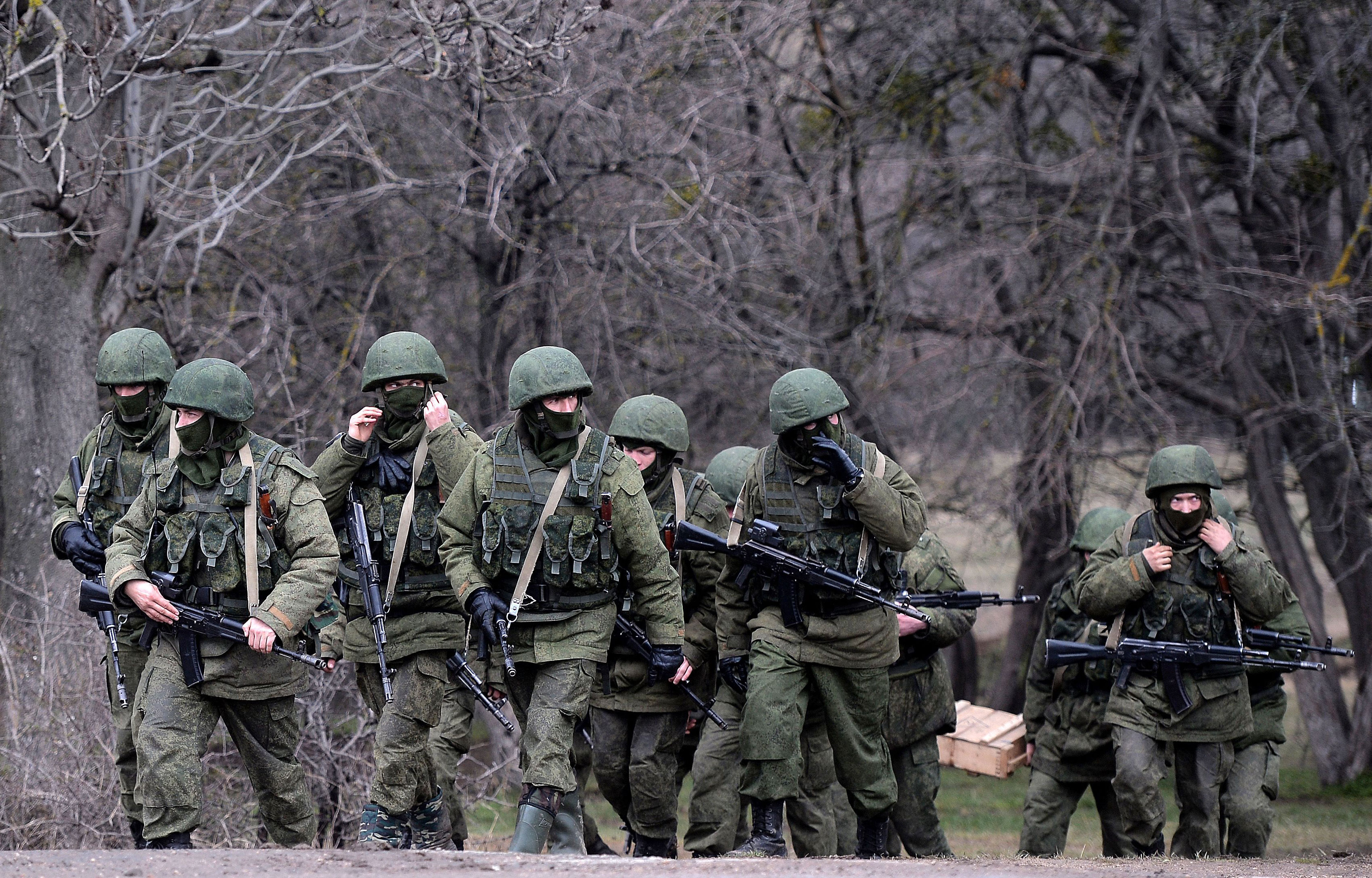
Ukraine’s Foreign Affairs Ministry marked the anniversary of Russia’s annexation of Crimea on Saturday, saying the peninsula has been “suffering” under the Kremlin for nine years and calling for Russia to leave all occupied Ukrainian territories.
In 2014, Russia invaded the Black Sea peninsula and completed its annexation within days, holding a referendum that was slammed by Ukraine and most of the world as illegitimate.
“For nine years in a row, the Crimean peninsula has been suffering under the criminal regime of the Kremlin, which has turned it into a military outpost, a zone of unfreedom and harassment, aggression and terror against everything and everyone who has found the courage to resist and defend their democratic rights and values,” according to the Ukrainian statement.
The ministry also condemned the so-called referendums held last year in the occupied portions of Ukraine’s Kherson, Zaporizhzhia, Luhansk and Donetsk regions. That process has also been denounced by Kyiv and Western governments as violating international law.
“Both in 2014 and in 2022, the referendum theater has no consequences for the administrative-territorial structure and internationally recognized borders of Ukraine,” the statement said. “The liberation of all other temporarily occupied territories will also happen. It is only a matter of time.”
The ministry thanked Ukraine’s global allies for helping it move toward regaining territory, including in Crimea, and said Ukraine will make every effort to punish Russia and its leadership.
In Crimea, Russian President Vladimir Putin attended an event Saturday in the peninsula’s largest city, Sevastopol, to mark the anniversary.
Analysis: Wagner boss’ recruitment drive comes as the Moscow establishment tries to ice him out
Analysis by CNN’s Tim Lister
Yevgeny Prigozhin, the combative boss of Russia’s Wagner private military group, on Saturday announced a push to expand his ranks by 30,000 fighters by mid-May.
The recruitment drive comes at a time when Moscow’s establishment seems content to watch Prigozhin struggle, rather than see his influence in the Kremlin grow.
Wagner placed a bet on its mercenaries raising the Russian flag in the eastern Ukrainian city of Bakhmut, but its efforts there have come at a considerable cost to the company’s ranks.
Prigozhin spent heavily on recruiting as many as 40,000 prisoners to throw into the fight, but after months of grinding battle and staggering losses, he is struggling to replenish Wagner’s ranks.
The Wagner head accuses Russia’s Defense Ministry of trying to strangle his force, and many analysts think his suspicions are well-founded — that Russia’s military establishment is using the Bakhmut “meat-grinder” to cut him down to size or eliminate him as a political force altogether.
At the weekend, Prigozhin acknowledged that the battle in Bakhmut was “difficult, very difficult, with the enemy fighting for each meter.”
In another video message, Prigozhin said: “We need the military to shield the approaches (to Bakhmut). If they manage to do so, everything will be okay. If not, then Wagner will be encircled together with the Ukrainians inside Bakhmut.”
Just as Prigozhin most needs the support of regular Russian forces and a reliable flow of munitions, neither appears available.
Wagner has made incremental gains around Bakhmut and now holds the eastern part of the city. But it seems unable to generate enough force to expel Ukrainian forces from the rest of Bakhmut. And its fighters are spread thin as they push northwest and southwest beyond the city.
The Washington-based Institute for the Study of War (ISW) think tank assesses that Defense Minister Sergei Shoigu “is likely seizing the opportunity to deliberately expend both elite and convict Wagner forces in Bakhmut in an effort to weaken Prigozhin and derail his ambitions for greater influence in the Kremlin.”
Read the full analysis here.
Turkish President Erdogan announces extension of Ukraine Black Sea grain deal
From CNN’s Yusuf Gezer in Istanbul and Lauren Kent in London
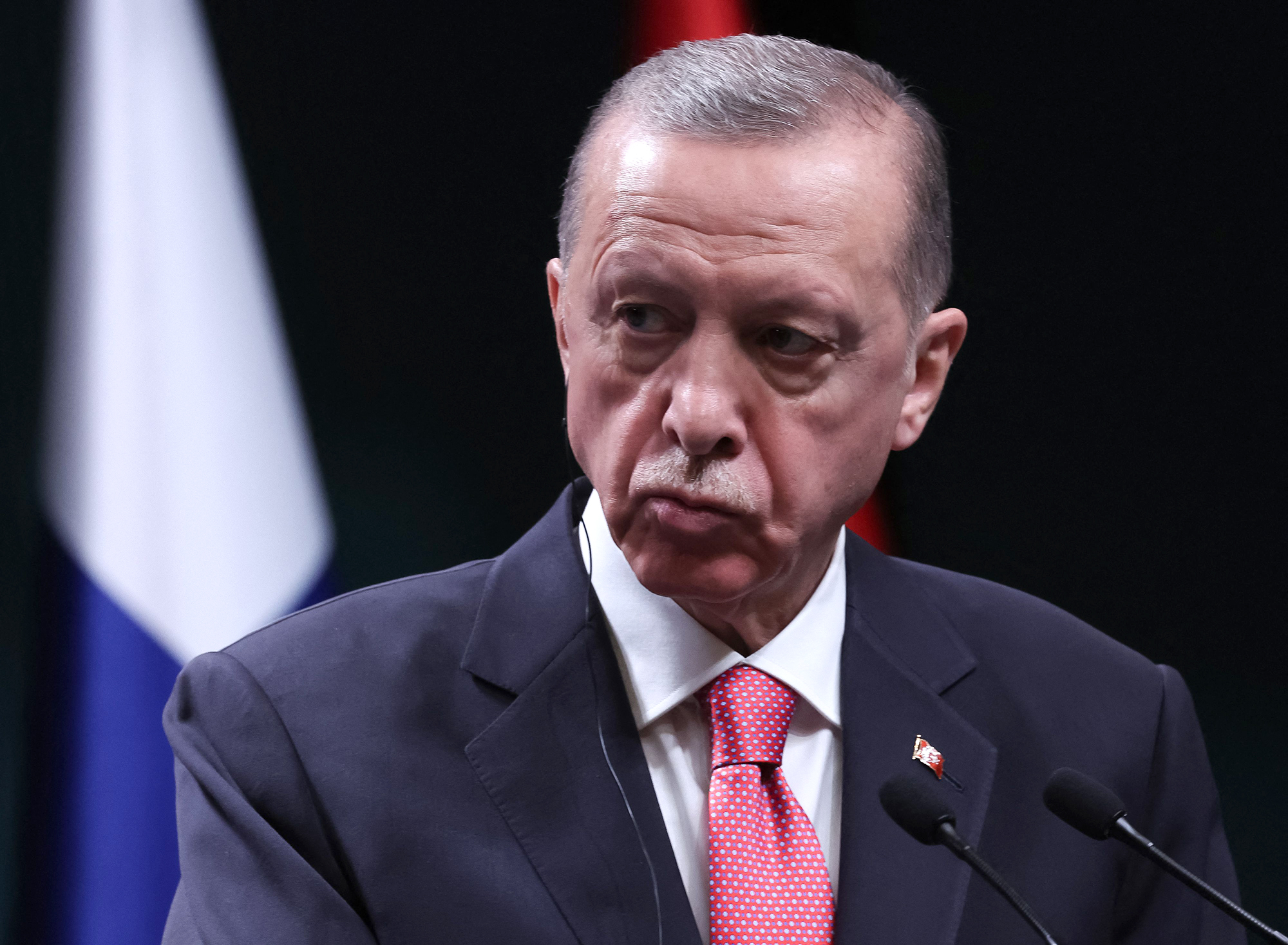
Turkish President Recep Tayyip Erdogan announced an extension of the Black Sea grain deal Saturday, but he did not specify a new expiration date.
The deal, which was brokered by the United Nations and Turkey last July to guarantee safe passage for ships carrying vital grain exports from Ukraine, had been set to expire today.
“As a result of our negotiations with both parties, we extended the agreement period,” Erdogan said at an event in Turkey’s Çanakkale province.
“This agreement, which has provided the shipment of 25 million tons of grain to the world markets with more than 800 ships to date, is of vital importance for the stability of the global food supply,” Erdogan added. “I would like to thank the Russian and Ukrainian parties and the UN secretary general for their efforts to extend the agreement once again.”
The United Nations praised the extension in a statement.
“We remain strongly committed to both agreements and we urge all sides to redouble their efforts to implement them fully,” said Stéphane Dujarric, a spokesperson for the UN secretary-general.
Some context: The agreement comes after Russia said Monday it had agreed to a 60-day extension of the deal, while the UN emphasized on Thursday that the deal stated it would be extended for 120 days — not 60.
Why the grain deal is important: Ukraine and Russia are both significant suppliers of food to the world. Ukraine – known as one of the globe’s breadbaskets — normally supplies about 45 million metric tons of grain to the global market every year and is the world’s top exporter of sunflower oil. Together with Russia, it accounted for about one-quarter of global wheat exports in 2019.
Before Russia invaded Ukraine, the price of food was already at its highest level in a decade due to scrambled supply chains from the Covid-19 pandemic and extreme weather events.
In 2022, the number of people grappling with acute food insecurity — meaning their access to food was so restricted that it threatened their lives and livelihoods — shot up to 345 million from 135 million in 2019.
CNN’s Julia Horowitz contributed reporting to this post.
Senior Ukrainian and US officials discuss military aid in call
From CNN’s Kostan Nechyporenko
Top officials from Kyiv and Washington held a video conference to discuss the “urgent needs” of the Ukrainian military and the current situation on the battlefield, according to the head of the Office of the President of Ukraine, Andriy Yermak.
US Defense Secretary Lloyd Austin, national security adviser Jake Sullivan and Joint Chiefs Chairman Gen. Mark Milley were all on the call, which was held on Saturday local time, Yermak said in a Telegram post.
They were joined by their Ukrainian counterparts, including Yermak, Armed Forces Gen. Valerii Zaluzhnyi, Defense Minister Oleksii Reznikov and other senior military commanders.
Ukrainian President Volodymyr Zelensky also joined at the end of the conversation, Yermak said.
“We briefed our allies in detail on the current situation at the front, the battles in the most difficult areas, and the urgent needs of the Ukrainian army,” the Ukrainian official wrote.
Ukraine stressed the need for more equipment, weapons, ammunition and other aid for the battlefield, Yermak said.
